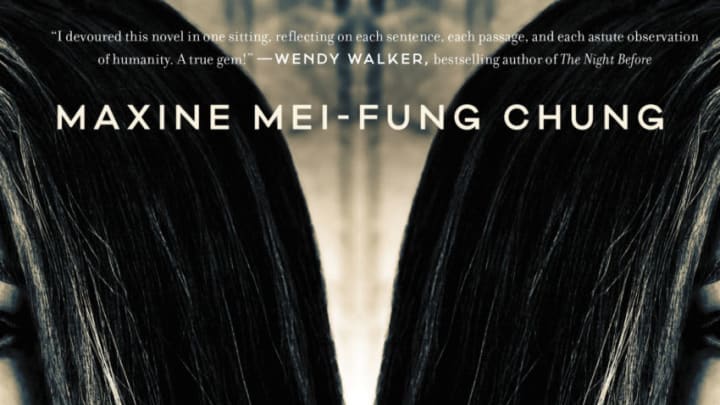Maxine Mei-Fung Chung’s The Eighth Girl is a book full of trigger warnings, but it serves as a harrowing character study of mental illness and trauma.
Maxine Mei-Fung Chung’s debut novel is not an easy read. In fact, The Eighth Girl is a novel that explores some of the darkest aspects of society — and it’s one that readers should open with caution, particularly if they find accounts of sexual abuse and assault triggering. That said, as difficult as The Eighth Girl can be to read, it’s an important deep dive into both mental illness and misogyny — and the struggle it can be to cope with both.
The Eighth Girl is told in dual perspectives, shifting back and forth between the book’s central character, Alexa Wú, and her psychologist, Daniel Rosenstein. Alexa has dissociative identity disorder (DID), something that manifested after her mother committed suicide and her father began abusing her. While most of Alexa’s personalities serve as a means of protection, losing time and jumping between them sometimes puts her in danger.
And that danger increases when Alexa’s best friend, Ella, accepts a job at a high-end strip club. Before she knows it, Alexa finds herself wrapped up in this world and all that comes with it — and Ella’s boss is involved in far more dastardly work than just managing his club. Just as the narrative explores the sexual abuse and subsequent mental illness that Alexa struggles with, it shows the misogyny and objectification sex workers are forced to contend with on a daily basis. (And that’s not to mention the book’s dissection of human trafficking.)
As Alexa learns more about the Electra and its owner, Navid, she and “the Nest,” as she often refers to her personalities, attempt to gather enough evidence to stop him from hurting any more girls and women. Of course, this only increases Alexa’s chances of getting caught — and the likelihood that she’ll be harmed in the process.
Chung’s background as a psychotherapist is clear in her depiction of Alexa’s disorder, which is never painted by the author as something disturbing or problematic. Instead, Chung explores how psychologists can sometimes fail their patients through their own biases and countertransference, penning Daniel as a more flawed character than anyone would want to believe their shrink to be.
The portrayal of sex workers is also admirable because, even when Alexa looks down upon her best friend for choosing this lifestyle, it’s clear that the author isn’t trying to push that message. Instead, she showcases the problems strippers often face — especially when it comes to society’s perception of them — highlighting the misogynistic mindset that drives these issues.
At its core, The Eighth Girl is a study of trauma and all that accompanies it. And while it’s important to highlight the types of abuse that are happening every day, one does have to wonder to what extent readers need to see it on the page. Chung doesn’t hold back much when it comes to describing the incidents that Alexa experiences or witnesses, and while it emphasizes how horrible such things are in reality, it also makes the story that much harder to get through.
That said, The Eighth Girl‘s ending will satisfy on multiple levels. From the book’s major twist to Alexa’s ending and the Electra’s comeuppance, this novel does leave readers with a bit of hope, no matter how bleak the story gets on its way there.
The Eighth Girl is currently available in print, ebook, and audiobook formats.
